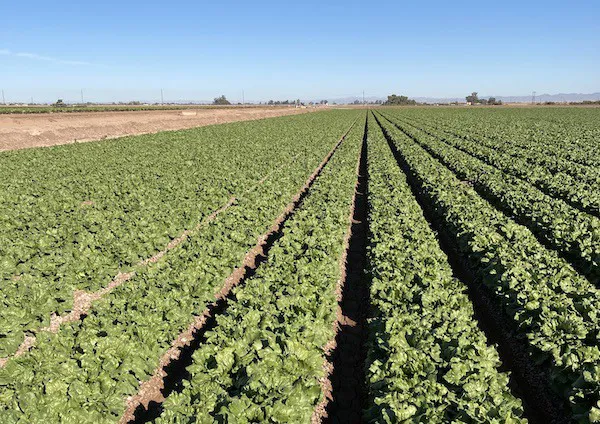Gaps are on their way. That’s the conclusion following California’s continued rains and their effect on the spring row vegetable crops.
“There have been short-term challenges such as getting products in and out of the field because it’s so wet. The bigger challenges will be in the next month or two when we transition back from Yuma to the Coast. Then we’ll run into problems from Orange County to the Salinas Valley as far as having missed plantings because the fields have been too wet to get in to work the ground,” says Russ Widerburg of Valley Produce based in Camarillo. “We could see some planting gaps, mainly in Oxnard, Santa Maria and the Salinas Valley.”
Indeed, Mark McBride of Coastline Family Farms expects to finish the desert deal between April 10-15th and anticipates starting in Salinas April 15-20, adding that the current weather in the desert is ideal for rapid growth and maturity, and supply is outpacing demand. “We are doing whatever we can to stretch our desert acreage later and everything we can to try to bring our Salinas acreage in sooner. The next several weeks will be challenging,” he says. “In general, Salinas start dates have been pushed back due to the cool, wet weather pattern, and most companies are expecting production gaps during the transition back north. Weather in both areas over the next few weeks will either minimize or accentuate these production gaps.”

The effect of multiple storms
Those gaps are also not necessarily caused solely by the recent storm. “There’ve been times where they haven’t been able to get in and work the ground for a week or two at a time because we’ve had multiple storms come through,” Widerburg says. In terms of products that could see gaps, this includes a variety of California row vegetable crops, including lettuces, cabbages, celery, and more.
This could mean that some stronger markets for California row crops are impending. “It’s been a crazy fall and winter with some extraordinarily high pricing. Once the desert caught hold and got their footing, there was pretty good volume, and some of the markets came back down,” says Widerburg. “The speculation now is going into the next two to three weeks. A lot of the markets could pop back up. Supplies will be limited, and demand will be good, so it should create some higher markets.”
That said, the California agriculture industry remains ultimately thankful for the ample rain. “It’s a blessing but also a short-term curse. We need water because we’ve been under drought conditions for the last few years,” he says. “Everything is green, and the lakes, reservoirs, water tables, and wells have all filled back up. We could still use more rain, and we have more rain coming.”
For more information:
Russ Widerburg
Valley Produce
[email protected]
 Mark McBride
Mark McBride
Coastline Family Farms
[email protected]
www.coastlinefamilyfarms.com










